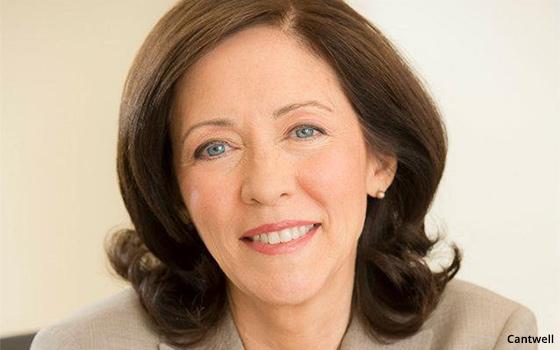Senate Urged To Scrap Online Safety Bill
- by Wendy Davis @wendyndavis, September 12, 2023
Dozens of parents of transgender teens are urging Congress to abandon a “deeply flawed” bill that would regulate how social media platforms display ads and content to teens under 17.
The Kids Online Safety Act (KOSA), which was recently advanced by the Senate Commerce Committee, would require social platforms to take “reasonable measures” to prevent potential harms associated with social media use when displaying material to users the platforms know or should know are 16 or younger. The bill would task the Federal Trade Commission and state attorneys general with enforcement.
In a letter released Tuesday, more than 100 parents of trans and gender expansive teens argue against empowering state attorneys general to police social platforms.
advertisement
advertisement
“Legislation like KOSA would make our kids less safe, not more safe,” the letter states. “We are imploring you to abandon KOSA, which is deeply flawed and faces overwhelming opposition from human rights, LGBTQ, racial justice, and civil liberties organizations.”
The parents say the bill would “grant extraordinary new power to right wing state attorneys general to dictate what content younger users can see on social media, cutting our kids off from lifesaving online resources and community.”
They note that some conservative attorneys general already are “actively working to ban gender affirming health care that saves kids’ lives, criminalize drag performances, and label families that accept our children as 'groomers' and 'child abusers.'”
Numerous digital rights organizations including the Electronic Frontier Foundation also oppose the law, arguing it would violate the First Amendment.
One concern is that the bill could prevent teens from accessing content protected by free speech principles. In general, the First Amendment prohibits the government from suppressing a range of content that law enforcement officials like attorneys general might consider harmful -- ranging from photos associated with eating disorders, to “hate speech,” to material discussing drug use.
Opponents also have warned that attorneys general would use the bill to suppress lesbian and gay material.
Senate Commerce Committee Chair Maria Cantwell (D-Washington) acknowledged some of those concerns in July and said the Senate will work with advocates, but didn't provide any specifics.
Opponents additionally say the measure could effectively require platforms to verify all users' ages -- which likely would deprive adults as well as minors of their long established First Amendment right to access information anonymously.
An Arkansas law that would have required social platforms to verify users' ages was struck down late last month by U.S. District Court Judge Timothy Brooks in Fayetteville. He ruled that mandatory age-verification violates adults' rights to access social media platforms.
“It is likely that many adults who otherwise would be interested in becoming account holders on regulated social media platforms will be deterred -- and their speech chilled -- as a result of the age-verification requirements,” Brooks wrote.
Some youth advocates including Fairplay, the American Academy of Pediatrics and the Center for Digital Democracy have urged lawmakers to pass KOSA, arguing it will help protect teens from eating disorders, online bullying and other harms.
Bill co-sponsor Senator Richard Blumenthal (D-Connecticut) has also attributed adolescents' mental health issues to social media platforms.
“Record levels of hopelessness and despair -- a national teen mental health crisis -- have been fueled by black box algorithms featuring eating disorders, bullying, suicidal thoughts, and more,” he stated in May, when he and Senator Marsha Blackburn (R-Tennessee) reintroduced the bill.
Despite those assertions, the impact of social media on teens' mental health overall remains unclear. The New York Times noted in June that there's “little research to prove that social media is harmful -- or to indicate which sites, apps or features are problematic.”
The American Psychological Association said in a May report that social media use “is not inherently beneficial or harmful to young people.”
That group added that in most cases, “the effects of social media are dependent on adolescents’ own personal and psychological characteristics and social circumstances -- intersecting with the specific content, features, or functions that are afforded within many social media platforms.”



